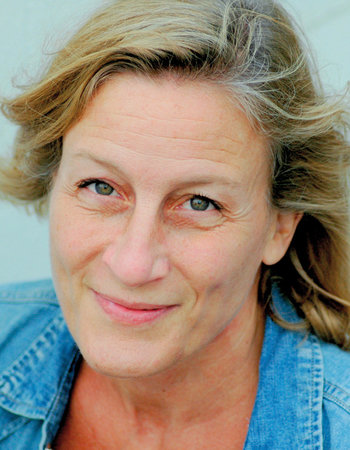
Prof. Dr. Nicole Dubilier
Curriculum Vitae
Nicole Dubilier grew up in the USA, gained her PhD from the University of Hamburg Germany in 1992, and after a postdoc at Harvard University, joined the Max Planck Institute for Marine Microbiology in Bremen, Germany. Her achievements have been recognized through numerous awards and honors, including the Leibniz Prize (Germany's most prestigious research prize), a Gordon and Betty Moore Marine Microbial Initiative Investigator Award, and a European Research Council Advanced Grant. She is an elected Fellow of the German National Academy of Sciences (Leopoldina), European Molecular Biology Organisation, European Academy of Microbiology, and American Academy of Microbiology, and is the current President of the International Society of Microbial Ecology. She serves on many national and international
advisory boards, scientific councils and other commissions of trust, and is engaged in advancing gender equity in science.
Nicole Dubilier is a Director at the Max Planck Institute for Marine Microbiology in Bremen, Germany where she heads the Symbiosis Department, and a professor for Microbial Symbiosis at the University of Bremen. Her research has fueled a major change in our understanding of the importance, diversity and function of symbioses between bacteria and animals. Together with her team, she has revealed the remarkable diversity of marine symbioses, and shown that beneficial associations between bacteria and marine invertebrates have evolved independently and multiple times in convergent evolution. Her research has provided a critical contribution to marine microbiology and ecology by showing how wide-spread symbioses between marine invertebrates and bacteria are in terms of geography, animal and bacterial diversity, and habitats ranging from coastal sediments to the deep-sea. She has led numerous research cruises and expeditions worldwide, and uses a wide array of methods to study marine symbioses that range from deep-sea in situ tools to molecular, 'omic' and imaging analyses.
advisory boards, scientific councils and other commissions of trust, and is engaged in advancing gender equity in science.
Nicole Dubilier is a Director at the Max Planck Institute for Marine Microbiology in Bremen, Germany where she heads the Symbiosis Department, and a professor for Microbial Symbiosis at the University of Bremen. Her research has fueled a major change in our understanding of the importance, diversity and function of symbioses between bacteria and animals. Together with her team, she has revealed the remarkable diversity of marine symbioses, and shown that beneficial associations between bacteria and marine invertebrates have evolved independently and multiple times in convergent evolution. Her research has provided a critical contribution to marine microbiology and ecology by showing how wide-spread symbioses between marine invertebrates and bacteria are in terms of geography, animal and bacterial diversity, and habitats ranging from coastal sediments to the deep-sea. She has led numerous research cruises and expeditions worldwide, and uses a wide array of methods to study marine symbioses that range from deep-sea in situ tools to molecular, 'omic' and imaging analyses.